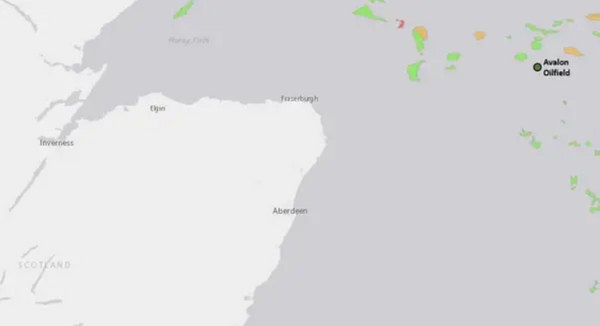
Oil and gas company Ping Petroleum's proposed development concept for the Avalon discovery in the UK Central North Sea, has received a letter of “no objection” from the North Sea Transition Authority (“NSTA”).
The concept comprises a tie-back of Avalon production wels to a re-used Floating Production Storage and Offloading facility (“FPSO”), which has spare ullage to provide an offtake route for nearby stranded discoveries.
Syed Zainal Abidin Syed Mohamed Tahir, Group Managing Director of DNeX, said that receiving “no objection” to the proposed development concept represents a material opportunity to expand and diversify Ping’s portfolio of oil assets in full accordance with the UK’s production and emissions-reduction targets.
Also, DNEX Managing Director said that discussions were underway with the UK regulator and supply chain to decarbonize the development through integration with floating offshore wind.
With a total estimated recovery of 23 million barrels of oil, production from Ping’s second oilfield asset is scheduled to begin between mid-2024 and mid-2025, subject to the availability of key materials and equipment.
The company will now finalize conceptual development planning and begin Front End Engineering works in preparation to submit the Avalon Field Development Plan, with Final Investment Decision (“FID”) anticipated later this year.
“The next step for Ping is to submit the company’s field development plan for Avalon to NSTA by the next quarter. Once approval is attained, the company will proceed with the full development program,” said Syed Zainal Abidin Syed Mohamed Tahir.
He said the Avalon field is planned to produce at initial rates of 20, 000 barrels of oil per day, providing a material increase in production and diversifying the asset base.
Ping, a 90 percent subsidiary of DNeX, last year acquired the remaining 50 percent interest in UK North Sea Block 21/6b, License P.2006, containing the Avalon Oil Development from Summit Exploration and Production Limited, a subsidiary of Sumitomo Corporation. The acquisition brought Ping’s ownership in the licence to 100 percent.



